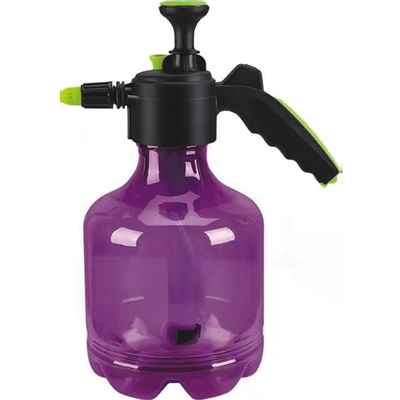Water sprayers, also known as spray bottles or misters, are versatile tools used for a wide range of purposes, from gardening and cleaning to personal care and household tasks. While water sprayers are generally safe to use, it's essential to exercise caution to prevent accidents and ensure proper handling. In this article, we will explore some essential safety precautions for using a water sprayer to ensure your safety and the safety of others around you.
Before using a water sprayer, carefully read and follow the manufacturer's instructions and guidelines. Each sprayer may have specific usage instructions, maintenance requirements, and safety precautions that you need to be aware of.
Select a water sprayer that is appropriate for the task at hand. Different sprayers are designed for various applications, such as gardening, cleaning, or personal use. Using the wrong type of sprayer can result in inefficiency or even damage to the sprayer or the surfaces being sprayed.
Before using the water sprayer, inspect it for any damage, leaks, or wear and tear. Check that all components, such as the nozzle, pump, and trigger, are working correctly. If you notice any issues, repair or replace the sprayer before use.
Always hold the water sprayer securely and maintain a firm grip while using it. Avoid swinging or tossing the sprayer, as it may lead to accidental spills or injuries.
Only use liquids that are intended for use with the water sprayer. Some sprayers are designed for water only, while others can handle various liquids, including cleaning solutions or insecticides. Never use caustic chemicals, flammable liquids, or corrosive substances in a sprayer not rated for such use.
When not in use, store the water sprayer in a safe and secure location, out of the reach of children and pets. Keep it away from direct sunlight, extreme temperatures, and potential sources of ignition.
Do not over-pressurize the sprayer. Follow the recommended pressure levels specified by the manufacturer. Over-pressurizing can damage the sprayer or cause it to leak or rupture.
If using the water sprayer indoors or in enclosed spaces, ensure proper ventilation. Some liquids, such as cleaning solutions or pesticides, may produce fumes that could be harmful if inhaled in large quantities.
Depending on the task, consider wearing appropriate protective gear, such as gloves, safety goggles, or a mask. This is particularly important when handling potentially hazardous substances.
Avoid using the water sprayer near electrical sources or power outlets. Water and electricity can be a dangerous combination, and accidental contact can lead to electric shocks or damage to electrical equipment.
After each use, clean the water sprayer thoroughly to prevent the buildup of residue or clogging of the nozzle. Regular maintenance, such as lubricating moving parts and replacing worn-out components, will ensure the sprayer functions optimally and safely.
If the water sprayer is used with chemicals or pesticides, dispose of any unused liquid and rinse the sprayer before storage. Follow local regulations for proper disposal of hazardous substances.
Water sprayers are valuable tools for a variety of tasks, but using them safely is essential. By following these safety precautions, you can minimize the risk of accidents and ensure that your water sprayer functions efficiently and effectively. Always read and follow the manufacturer's instructions, choose the right sprayer for the task, and handle the sprayer with care. With proper usage and maintenance, your water sprayer will continue to be a reliable and safe tool for all your spraying needs.










